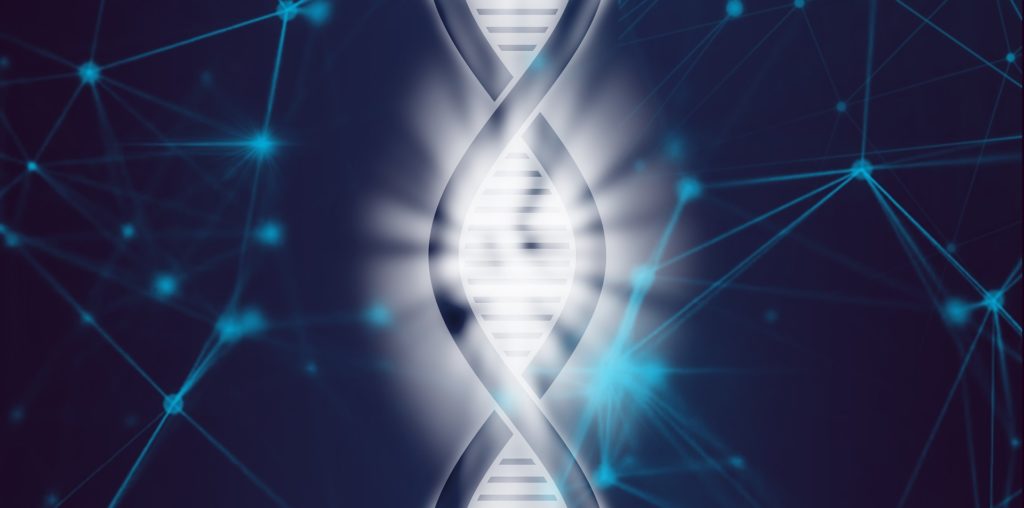As humans, we have always been passionate about improving ourselves and our world. We have developed countless technologies and medicines that have enabled us to live longer and healthier lives. But what if we could take it one step further? What if we could change our DNA itself to eliminate genetic diseases and unlock new potential in ourselves? As it turns out, this may not just be science fiction - DNA modification is a rapidly developing field that could have huge implications for our future.
The structure of DNA was discovered 70 years ago: On 28 February 1953, American biologist James Watson and British physicist Francis Crick discovered that this molecule, found in the nucleus of all our cells, consists of a double helix, that is, two parallel strands twisted together like a small ladder. Since that day, the discovery, which earned the two researchers a Nobel Prize, has changed the future of biology, genetics and all science.
DNA modification: The pathway to a better future
DNA modification is the process of changing the genetic code of a living organism. This can be done in various ways, for example by removing harmful mutations, adding beneficial traits or even introducing entirely new genes. The potential applications of DNA modification are very broad, ranging from treating genetic diseases to improving crop yields. Some even believe that DNA modification may eventually allow us to 'design' our children, selecting desirable traits and eliminating those we consider undesirable.
While this may seem like a radical step, it is important to remember that we have been modifying DNA for centuries - just in a more primitive way. Selective breeding of plants and animals is one form of DNA modification that has enabled us to breed crops that are more resistant to disease, or cattle that produce more meat or milk. With the advent of modern genetic engineering tools, we are simply taking the next step in the process.

The science behind DNA modification
DNA modification relies on a number of advanced techniques, many of which have only been developed in the last few decades. One of the most common approaches is CRISPR-Cas9, a system that allows scientists to target and edit specific genes in a cell. Essentially, it involves using an RNA molecule to 'target' the enzyme Cas9 to a specific location on a strand of DNA. Once there, Cas9 can cut the DNA, allowing scientists to either remove or replace a specific section of the genetic code.
Although CRISPR-Cas9 is currently the most popular method of DNA modification, there are other approaches. Some scientists are using 'base editing' to change individual letters in the DNA code, rather than cutting out the DNA completely. Others are developing new tools that can act on several genes at once, enabling more complex modifications.
Unlocking the potential of DNA editing
So what are the practical applications of DNA editing? One of the most obvious is the treatment of genetic diseases. By editing harmful mutations or introducing healthy genes, diseases such as cystic fibrosis or sickle cell anaemia can be eliminated. We have already seen promising results in animal studies and human clinical trials are under way.
In addition to curing disease, DNA editing could have huge implications for agriculture. By altering the genes of crops, we could potentially create plants that are more resistant to pests and diseases or that produce higher yields. This could play a crucial role in ensuring food security, especially in regions of the world affected by famine or drought.
Of course, there are potential downsides to DNA editing. Some fear that it could lead to unintended consequences, such as the creation of antibiotic-resistant 'superbugs'. There are also ethical concerns - for example, is it ethical to edit the genes of embryos to create 'designer babies'?
Despite these concerns, it is clear that DNA editing has enormous potential to improve our world. As with any new technology, it is important to proceed cautiously and carefully weigh the risks and benefits. But if we succeed in unlocking the full potential of DNA modification, we could be on the cusp of a truly amazing future.

DNA modification is a field that is still at an early stage, but developing at a rapid pace. As we continue to develop new techniques and explore new applications, it is likely that we will see even more opportunities. Although there are risks and concerns associated with DNA editing, the potential benefits are too great to ignore. By opening up the possibilities of DNA modification, we could be on our way to a better, healthier and more prosperous future.
On the other hand, human interference with the laws of nature and anatomy could have unfortunate consequences. After all, who would own such technology? And who will have access to it? After all, in case of favorable outcome of researches in this field, artificial evolution begun by mankind long ago will reach a new level, leaving out all those who is not worthy... And if to begin such experiments, it would be good to cure the main defect first - inordinate greed and avarice.


 and then
and then 

Даже подумать страшно, каким был бы мир без человеческой жадности:)